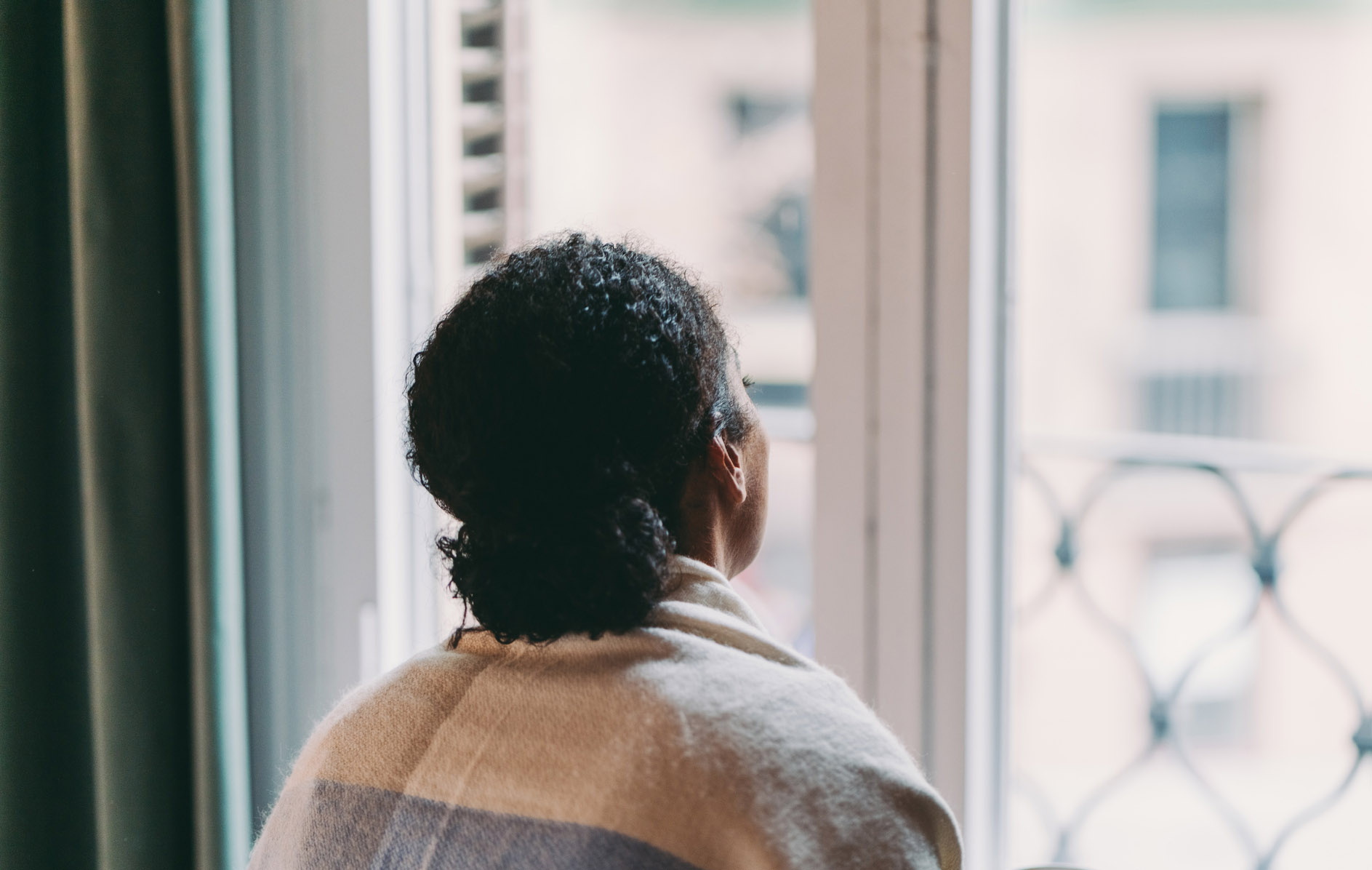
Elisha M., 31, a clinical research coordinator for oncology clinical trials living in New Jersey, can hardly put into words the joy she felt the moment she held her rainbow baby in her arms. Having previously experienced a pregnancy loss, she says she felt "so grateful and excited" to finally have her baby earthside, healthy and thriving.
But her son was also fussy and hard to soothe, and before the two were discharged from the hospital, Elisha found herself appreciably overwhelmed and crying nonstop. "By the end of the first week with him, I knew the emotions I was having were more than just the 'baby blues,' because I felt like I wanted to give up. I didn't want to be a parent anymore," Elisha tells me. "I loved him so much, but I also wanted out."
According to Centers for Disease Control and Prevention (CDC) research, one in eight experience symptoms of postpartum depression (though it's believed the rate is even higher, given the lack of reporting, education, and support resources available to postpartum women). In a country saddled with mental health care and health insurance crises—to say nothing of the pervasive systemic racism within the healthcare system that makes support even more unattainable for Black and brown postpartum people—treatment can be prohibitively expensive, if not completely out of reach.
"By the time I spoke to someone about the way I was feeling, counseling was pretty much off the table for me," Elisha says. "I started to have thoughts of hurting myself." Elisha says she took four to five months off from work so that she could work on herself and be mentally present, and recalls her insurance being billed nearly $1,000 for a single visit to simply speak to a doctor.
"We couldn't necessarily afford for me to be out of work, but my husband really encouraged me to do whatever it was that I felt like I needed and he would figure out everything else," she explains. "It did set us back financially for some time, which I think added another strain on our relationship in addition to the strain postpartum depression was already having on us as a couple."
I wanted to give up. I didn’t want to be a parent anymore.
On average, mental health providers practicing in major U.S. cities charge anywhere between $75 to $150 per 45-minute session, though rates in places like New York City, for example, can be upwards of $300 per session. And while costs of certain postpartum depression and anxiety medications can vary widely and depend on insurance coverage, the recent $34,000 price tag for a postpartum depression one-time infusion drug that's said to provide "fast relief" highlights just how expensive the cost of postpartum depression can be—and how unattainable it is for those who are not affluent. In 2017 alone, the cost of maternal depression was an astounding $14.2 billion—an average of $32,000 per mom.
Arden Cartrett, 28, who works in real estate and recently started a miscarriage doula business, says she paid anywhere from $150 to $200 per session with a mental health professional after realizing she was struggling with postpartum depression.
"When my son turned exactly 6 months old, I felt a shift," Cartrett tells me. "I had struggled with anxiety, feeling alone, and worrying about the pandemic, and honestly wasn't sure what would be considered normal or abnormal. Physically and mentally, I felt foggy and was having a really hard time keeping up with life."
Still, due to the high cost of care, Cartrett says she spaced out her therapy sessions—to the detriment of her mental health.
"I do have insurance, but it's a high deductible plan, which means I basically pay out-of-pocket expenses until I reach a certain amount (which is high), so I am having to pay hundreds out of pocket per session which unfortunately limits how often I can use that resource," she explains. "However, medication-wise, I'm on a common medication that is reasonably priced."
Of course, the cost of postpartum depression isn't just limited to a person's finances, nor does it only occur when a person experiences a live birth. In my book I Had a Miscarriage: A Memoir, a Movement, I outline the many costs of postpartum depression that exist with or without a baby in your arms—and those costs are physical, mental, emotional, and financial.
Kayte de la Fuente, 41, a California administrative assistant going to school to become a preschool teacher, says she and her husband have spent upwards of $100,000 between postpartum depression treatment, acupuncture, blood tests, medications, chiropractor visits, and IUI and IVF treatments. She has experienced three pregnancy losses in the last five years.
How does one continue to power through postpartum depression and the various ways it affects a life…while also managing the financial toll?
"It wasn't until we had done more rounds of IUI and having them not work that I really started to recognize the depression that I was in because of that [initial] miscarriage and all of the unsuccessful treatments," de la Fuente tells me. She says that she sought out "unconventional treatments" as well, including a 12-week program provided by a friend of a friend that focuses on finding your inner child, and an infertility support group as well. The program cost $1,200 and the group cost $200 for eight-week sessions—none of which was covered by insurance.
"Of course, because you're looking at all of the bills and you're trying to figure out what your next steps are because you already have all of this financial burden," she says. "Do you keep going?" How does one continue to power through postpartum depression and the various ways it affects a life—symptoms such as mood swings, sadness, anxiety, guilt, loss of interest or pleasure in activities, irritability, restlessness, reduced concentration, feeling overwhelmed, trouble sleeping, or all of the above—while also managing the financial toll?
It's a question anyone who identifies as a parent and who is struggling, whether they've had a live birth or not, has to ask themselves: How do I keep going? Can I keep going? How do I find a way to keep going?
For de la Fuente, the answer is clear: "We have one embryo left, and we're not going to leave it behind," she says. She does wish she had learned one vital lesson about postpartum depression sooner, though:
"You're worth it," de la Fuente says. "I am worth every single cent and my husband is worth every single cent that we have spent on this journey, too. Postpartum depression is real—it's absolutely 100% real, and it's ok to ask for help. You don't need to push it off. Because you're going to be better, which means you're going to be a better mom to your child. You're going to be a better person in general if you get the help that you need. You are your best investment."
It's a lesson that de la Fuente hopes anyone experiencing postpartum depression takes with them as they negotiate the unforeseeable tidal waves of perinatal and postpartum mood disorders.





